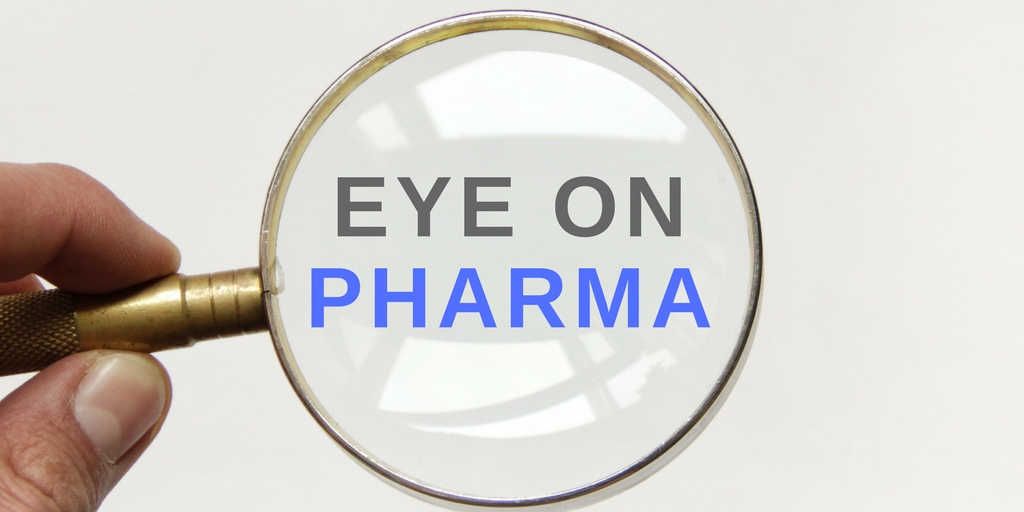- Bone Health
- Immunology
- Hematology
- Respiratory
- Dermatology
- Diabetes
- Gastroenterology
- Neurology
- Oncology
- Ophthalmology
- Rare Disease
- Rheumatology
Eye on Pharma: Bevacizumab Update; Samsung Bioepis, J&J Settlement; Another EU Trastuzumab
Outlook Therapeutics provides an update on the development of its bevacizumab candidate for age-related macular degeneration; Samsung Bioepis settles with Johnson & Johnson (J&J) over its ustekinumab biosimilar candidate; and the European Union gains another trastuzumab biosimilar.

Outlook Therapeutics provides an update on the development of its bevacizumab candidate for age-related macular degeneration; Samsung Bioepis settles with Johnson & Johnson (J&J) over its ustekinumab biosimilar candidate; and the European Union gains another trastuzumab biosimilar.
Update on Bevacizumab Product for AMD
Outlook Therapeutics shared that it received a complete response letter (CRL) from the FDA for ONS-5010, a bevacizumab product intended for the treatment of neovascular age-related macular degeneration (wet-AMD).
Bevacizumab products, including Amgen’s reference bevacizumab (Avastin), are often used off-label to treat wet-AMD. There are currently 4 bevacizumab biosimilars approved in the United States. However, because the reference product does not have an indication for wet-AMD, bevacizumab biosimilar manufacturers are not allowed to obtain this indication. Therefore, if it is eventually approved, it must be approved as a new drug and would not be classified as a biosimilar.
In the CRL, the FDA requested more data from “an additional adequate and well-controlled study to support the ONS-5010 BLA [biologics license application].” The analysis must evaluate ONS-5010 vs reference ranibizumab (Lucentis) over a 3-month period. The patients must be naïve to vascular endothelial growth factor receptor inhibitors (bevacizumab and ranibizumab).
Outlook Therapeutics said that it is working with the FDA’s Division of Ophthalmology to design an appropriate study to satisfy FDA’s requirement. The company projected that will resubmit its BLA for ONS-5010 by the end of 2024.
Samsung Bioepis Settles With J&J
Samsung Bioepis announced that it signed a settlement and license agreement with J&J, clearing the way for Samsung Biopeis’ SB17, a biosimilar referencing J&J’s Stelara (ustekinumab), to enter the US market pending FDA approval.
Under the terms of the agreement, Samsung Bioepis will be able to launch SB17 no earlier than February 22, 2025. The date is similar to those agreed upon during other J&J settlements with ustekinumab biosimilar manufacturers, including Amgen and Teva/Alvotech.
“We welcome this agreement which clears the way for SB17 in the US, which has a potential to broaden access to treatment for patients suffering inflammatory conditions,” said Kris Soyoung Lee, vice president and commercial team leader at Samsung Bioepis.
Ustekinumab products are human immunoglobulin G1k monoclonal antibodies that prevent abnormal regulation of IL-12 and IL-23, which are associated with several immunology diseases. Stelara is approved to treat plaque psoriasis, Crohn disease, ulcerative colitis, and psoriatic arthritis. If the FDA approves SB17, the product will be marketed by Sandoz as part of a September 2023 commercialization agreement.
Another Trastuzumab Biosimilar Receives EU Approval
The European Commission granted Sandoz and EirGenix marketing authorization for their trastuzumab biosimilar (Herwenda), making it the eighth biosimilar referencing Herceptin to be approved in the region.
Trastuzumab products are monoclonal antibodies that are used to treat patients with HER2-positive breast and gastric cancers. The reference product generated about $1.4 billion in year-to-date sales in September 2023, according to financial records from Roche, the maker of Herceptin.
The European Medicines Agency’s Committee for Medicinal Products for Human Use gave a positive recommendation for approval in September 2023. The approval and recommendation were based on a data package containing data from phase 1 and phase 3 trials. The phase 3 study including 807 patients demonstrated that the biosimilar was comparable in safety and efficacy to the reference product.
Newsletter
Where clinical, regulatory, and economic perspectives converge—sign up for Center for Biosimilars® emails to get expert insights on emerging treatment paradigms, biosimilar policy, and real-world outcomes that shape patient care.
